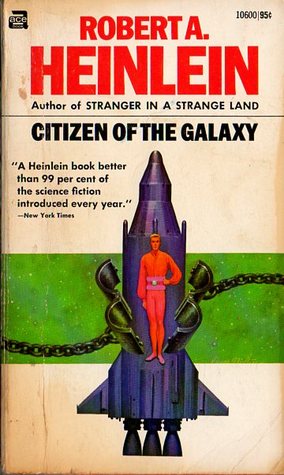Media I Consumed February 16th, 2018
I dunno. I dunno. A lot happened this week. Some good. Some not. I dunno. I hate the internet and don't ever want to be famous. I doubt there's much danger of that. Since I wrote the last post I read the following books, and watched the following movies. I'm going to start writing things about them now, because it helps me remember them later on.
The Bridge of Beyond By Simone Schwartz-Bart – Fabulous, just fabulous. Several generations of woman growing up in Guadeloupe, this is magical realism (I know, I know, sorry, sorry) at it's very best, that is to say an ecstatic (though not at all improbable) hyper-vivid storyline, filled with various folk beliefs and hints of fantastical activities, the purpose of which being to intensify the readers own reactions to the essentially very reasonable, human emotions of the cast. An enormously life-affirming novel, exceptional in its empathy. Oh, lovely, lovely! A very, very rare find. I have read a lot of fabulous books lately and gun to my head (please don't put a gun to my heard) this was the best. Absolutely beautiful. Obviously, keep.
The Dead-Mountaineer's Inn by the Brother's Strugatsky – A police investigator arrives at a (possibly haunted) winter cabin, various mysteries occur, to say much else would spoil things. You can probably assume by it being written by the two greatest Russian sci-fi writers (one of the best period) that there is more here than the usual locked door mystery, and that part of it I really liked, but at it happens I fucking hate locked door mysteries, and so the part of it that is an example or perhaps a parody of the that style of book really bored the shit out of me, and so I probably didn't love this as might as much as I might have. On the third hand (?) there is a sense of moral seriousness, evident likewise in last week's Roadside Picnic, which put it firmly in the keep column.
Invitation to a Beheading by Vladamir Nabokov – (Quick sidenote – this is not the first time that Vintage International has flat shit the bed on back copy (I'm looking at you, William Faulkner's The Mansion) directly spoiling the ending. Admittedly the ending is nonsensical but that's not the point, someone over there needs to fix this shit)High literature has its cliches as assuredly as does genre fiction, and among their number there is surely no hoarier conceit than 'man is put to death for the crime of being an individual,' every bit as banal as the beautiful broad walks into a private detective's office/scullery boy draws a sword from a stone. Here you will find the usual slate of grotesque side characters and tragi-comic interludes, done very well, so far as they go, I mean Nabokov can write, obviously, there are some laugh out loud funny bits, but basically it seemed like a lot of absurdity for absurdities sake, and it just felt tiringly similar to a lot of other things I've read. This is the first book I got from the LA Library (I joined a library! Woo-hoo for me!) and so the keep/drop dynamic doesn't really work as well, but if I'd bought this I'd have gotten rid of it.
God on the Rocks by Jane Gardam – Ooo. Oooh! Excellent. A summer in north England between the Wars, a precocious young girl and the horrible adults who surround her; a puritanical father, a weak mother, a lascivious nanny, a bunch of other less than lovely, though sympathetic and understandable, characters. This is very well written, but rarer (at least among a lot of the books I find myself reading) it is masterfully plotted, offering the sort of narrative anticipation that high literature often feels like it doesn't need to bother with (sidenote: it is generally wrong). Excellent all around, I'll definitely keep an eye out for more by Ms. Gundam. Another library book, but I'd keep this in principal.
The Postman Always Rings Twice by James M. Cain – Basically, this is a very good, grim noir/novel of existential despair in the Jim Thompson/Camus mold. I particularly liked the weird sadomasachistic sex, and the twisted sense of love which arises between the leads. On the other hand it's over complicated, and the legal drama and the various side-stories which come after the initial murder only serve to muddle the ferocious erotic nastiness of the plot. Still, fabulous, I'd keep it if I didn't need to give it back to the library.
Invincible Vol. 23 Full House – For my money, Invincible is the best superhero comic ever written, and one of the best comics period. A hundred plus issues in and Kirkman still manages to keep the story fresh, with surprising plot developments and solid character development. I guess it's coming to an end soon, apparently, and that's kind of a bummer but also I'm looking forward to seeing these evil Vultrimites get their what for. Fucking Vultrimites. Keep.
God's Country by Percival Everett – Absolutely fucking fabulous. Some peculiar crossbreed between Nathanael West and Charles Portis, an absurdist revisionist Western serving double (triple?) duty as a grand comment on racial injustice. Our antihero protagonist, Curt Marder, a cowardly, immoral fool, has his wife kidnapped by white men masquerading as Indians, and hires on the services of Bubba, a black tracker, heroic and taciturn, to find her. A series of tragi-comic misadventures ensues, exposing the hypocrisies of the mythology of the American West mythology and making me laugh with such frequency and intensity that I began to make the people at the bar around me uncomfortable. Brilliant, obviously a keeper
Harold and Maude – It's funny to see the Manic Pixie Dreamgirl spring full-grown from Hal Ashby like Athena from the head of Zeus, down to Harold learning a quirky instrument, and the Cat Stevens soundtrack. The original is much better than its descendants; the fake suicide attempts are, at first at least, legitimately funny, and every scene with Harold's mom made me laugh out loud (the bit where she's filling out his dating profile is a howler). Also, obviously, the age difference is legitimately transgressive, and Harold's gradual realization that he is sexually attracted to Maude is done in a really unsettlingly excellent way. The end is still kind of shticky, but then again romantic comedies by their nature kind of have to be. I quite liked it, all in all.
Being There – About a gentle retard who manages to stumble his way into the highest echelons of power by repeating things people say back to them and muttering the banal idiocies he learned from watching television. It's a brilliant conceit, and Peter Sellers is fabulous, although to my mind we could have shaved about 20 minutes off. But really that's a minor complaint, and this is a pretty great movie, particularly Shirley McClaine's hysterically funny sex scene and the brilliant final shot. Hal Ashby had a peculiar genius for creating films which future generations would steal from entirely while somehow completely missing his obvious ironic intent. Zach Braff saw Harold and Maude and figured, hey, what if Maude was young and beautiful and the ending was happy, and I guess Rob Zemeckis saw Being There and thought, hey, what if the inane platitudes of this halfwit did contain some seeds of wisdom, and he made Forest Gump. Weird. Weird. Anyway, this is great, watch it if you haven't.
Last Detail – Fabulous. About a pair of Navy-lifers who are charged with delivering an 18 year old boy to spend 8 years in prison for a minor crime, and the misadventures they gin up in en route. It's really, really well written, funny and mean, the dialogue and the interaction always feeling honest. Jack Nicholson plays one of the two guards, and he nails it- 'screamy' actors tend to age really badly, their intensity inevitably descends into schtick as they get older (I'm looking at you, Al Pacino) but this role really shows Nicholson at his best—there's a raw authenticity to him, a mad passion that bubbles off the screen, whether he's screaming at a mouthy bartender or lamenting the loss of their charge's innocence. Really, really liked this movie.
Shampoo – Mainly what I liked about this is there are no easy villains. Characters who would be throw away villains in worse movies – a commercial director who swoops in on Goldie Hawn, a sleazy industrialist played brilliantly by Jack Warden (there's a character actor, shit) – they're sympathetic, even likable. For that matter Beatty's womanizing prick is drawn with understanding awfulness. Oh, and 18 year old Carrie Fisher has got gigantic eyes and solid comic chops.
Lost Highway – I basically want to avoid giving any actual interpretation of the film, or even much of a description, because I fear they'll just spoil the thing, and if you haven't seen it you ought to, but this seemed very much to me to be a sort of practice run for Lynch's superior Mulholland Drive, having much the same basic set up – a pair of stories reflecting one another, with the illusory half functioning as an attempt by the protagonist to overcome the evils brought about by their obsessive, violent, destructive love. So far as Lynch goes, this is pretty coherent, closer to say, Blue Velvet than Inland Empire, but all the same if you like your films with, you know, clear plots and whatnot you might want to stay away. Obviously I'm kind of a obsessed with Lynch, indeed I have no idea why I haven't seen this movie already, and am glad I rectified that failing. Also, more fun to watch Lynch now that I've moved out to LA, but obviously that's not going to be much for you one way nor tother.





































































































































